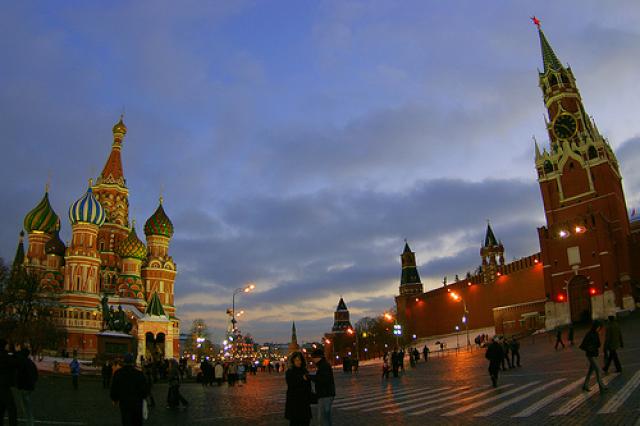
Among the many TV channels I subscribe to are Aljazeera, the English language TV station based in Doha, just about a year old, and Russia Today, an English language channel based in Moscow. Both supply twenty-four hour news coverage. Aljazeera is the richest and most modern TV station in the world, with global coverage and star quality anchormen and women. Russia Today is more modest, but on the same level as CNN or Fox News in the U.S., BBC World News or any of the French or Germany news stations. Since news coverage is fairly repetitious, I often zap to see what is going on in Russia. I never took the title to mean only Russia Today, but last night, January 29th, I belatedly realized that that is exactly what it does do: it covers news in Russia or its ex-republics, or news of Russians elsewhere in the world. Nevertheless, I was surprised that not one of its news stories over a period of three hours had anything to do with any of the news I was hearing on the other news services: no Gaza breakthrough, no incipient recession in the U.S., no U.S. presidential primaries (Aljazeera has a special on them every day), no Kenyan riots. I am willing to bet that no one outside of Russia can guess any of the stories that were covered by Russia Today on January 29th.. A rejected bear cub in the Kazakhstan Zoo, for example. Any of you know about that?
So I made a quick list and am sharing it with anyone who would like to be informed. I know Aljazeera is officially not allowed on U.S. airwaves, and doubt that Russia Today is (but would like any info available on this). It is an entirely new world you tune in to when you enter this Russia. I myself find it very gratifying in an age of globalization to know that Russia Today is not smeared with the conformity of the usual media coverage. I am not referring to attitude or scope, just that they are different and unique. Here is an overview:
Main Stories:
1) Strike at Russian-Polish border crossing. For the last three days, trailer trucks have been lined up for kilometers on the Russian side of the border, waiting for the strike of the Polish border guards to end. In the often subzero weather, there has been no provision for food, sleep or hygiene for the drivers. Polish food pedlars do not accept rubles and drivers must sleep in their trucks. Due to these primitive conditions one driver with a heart condition has died.
2) The opposition parties in Georgia have presented a list of demands to the newly elected Saahkashvili gov’t: among them are the demand for a recount of votes and for the dismissal of the Minister of the Interior. Otherwise, the opposition will call for street demonstrations.
3) Isabel Dalfer, a sixty-nine year old Israeli woman born in Moscow, will be the oldest woman in the world to be condemned to a prison term. The Israeli court has called for her incarceration as soon as the hospital authorities where she is now under treatment believe she is strong enough. Mrs. Dalfer was convicted of helping her daughter to kidnap her child and escape to Moscow. The RT anchorwoman asks if this woman would have received a lighter sentence if she had not been Russian?
Pause:
Here is the one tenuous connection with information on another news service: Aljazeera’s feature Everywoman discusses the problem of women seeking divorce in Israel. According to Jewish religious law, only the man can request a divorce. If he refuses, the Orthodox Rabbinate can try to persuade him, but cannot override his decision. The rabbi usually suggests that women bargain for their husbands’ consent, and one of the items in the bargaining process is custody of the children. If the wife agrees to surrender custody, her husband may agree to the divorce. Perhaps this explains the kidnapping charge against Isabel Dalfer?
Other News:
4) Up and coming elections for president in Russia. Medvedev, Putin’s candidate, has announced he will not take part in the TV debates, offered free to all candidates (there are over ten). Zyuganov, the Communist Party candidate, says he may drop out too.
5) Russian war monument in Hungary (1941-45) found on land to be bulldozed for development. The Hungarians say they did not know the monument was there. Bulldozing a war monument is illegal.
Special Feature: The famous amber room in the Tsarskoye Selo palace, stolen and hidden by the German army at the end of World War II, has been recreated by Russian mosaic artists and exhibited at a gala public reception at the palace attended by President Putin and his wife. Nevertheless, foreign researchers are still looking for the original amber room, sunk in the seas or buried somewhere near Kaliningrad. Experts say it is likely that the amber, a resinous semiprecious stone, which takes over 50 million years to develop, loses its color by prolonged submersion in water and becomes an ordinary stone again.


Leave Your Comments